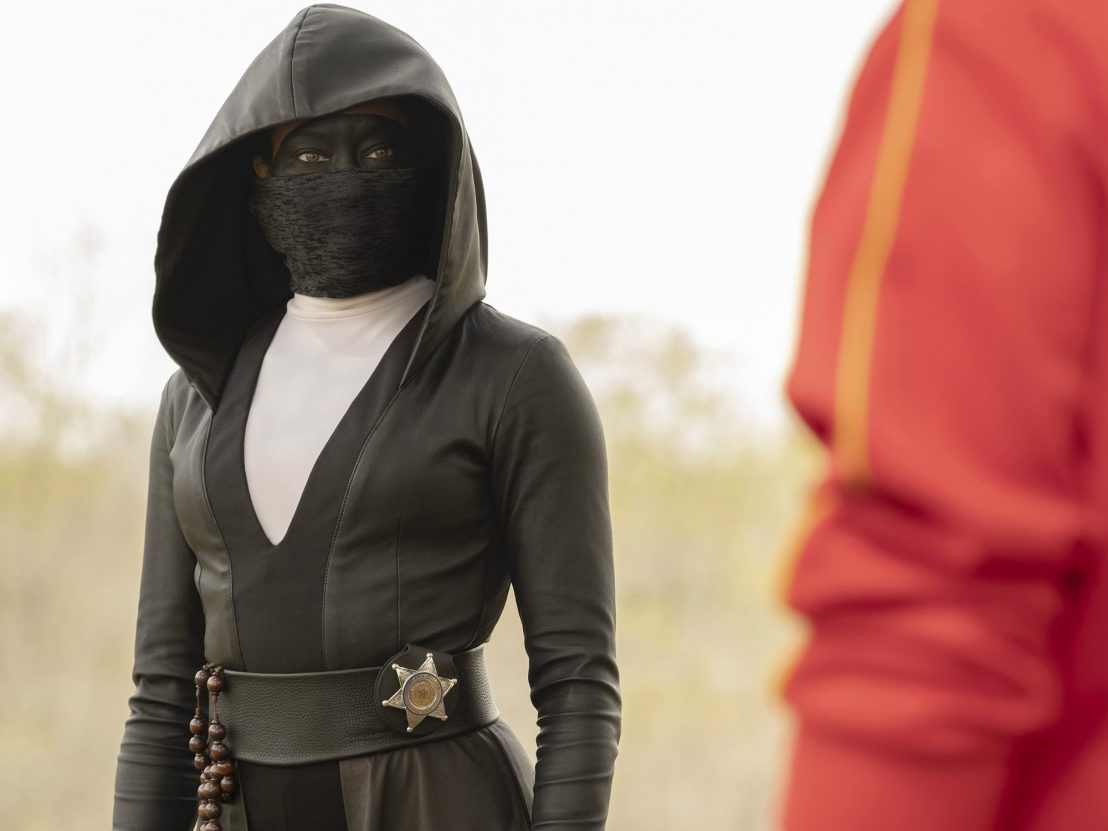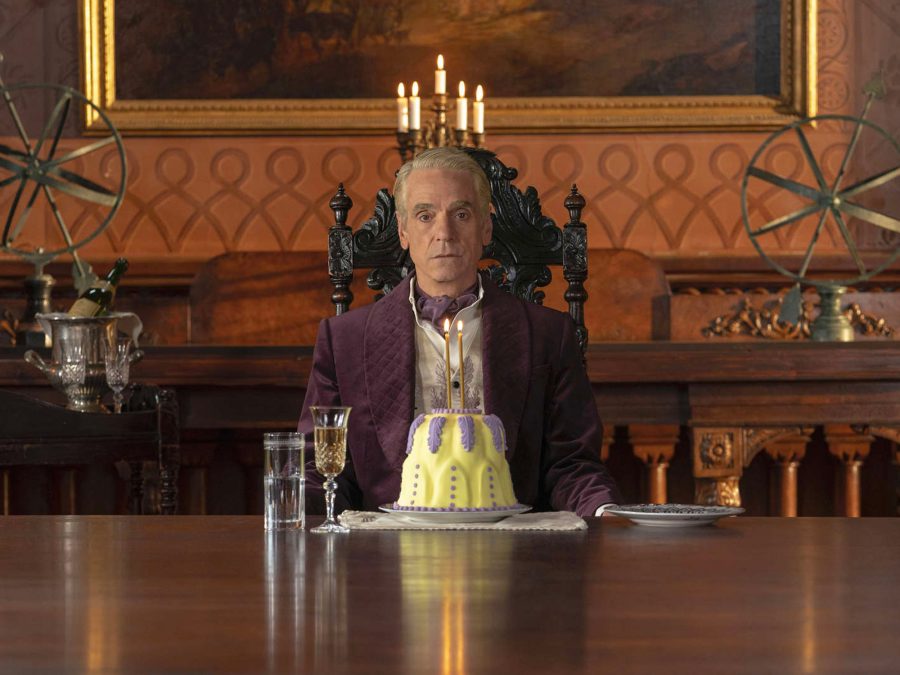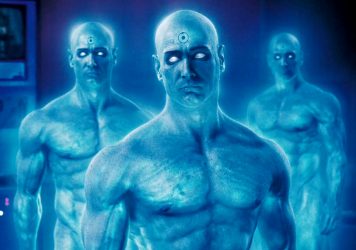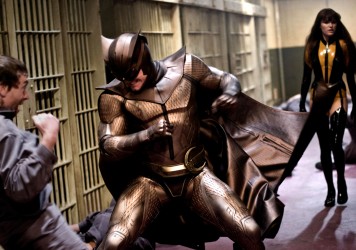
The history of Watchmen is as complicated in reality as it is in-text. Created by Alan Moore and Dave Gibbons, it was initially published by DC Comics between September 1986 and October 1987 as a limited series of comics, with the proviso that when DC failed to do anything with the property for over a year, the rights to it would revert to Moore and Gibbons. This never happened: the critical and commercial success of the initial Watchmen run turned it into something of a cult phenomenon, and DC saw the huge potential in the property to run, and run, and run.
Ownership over Watchmen – and Moore’s other DC property, V for Vendetta – never reverted back to the writer, and he severed ties with the publishing company in 1989 over the dispute. Since then, Watchmen has remained in print, spawning a prequel, film adaptation, and now, at the hands of Lost and The Leftovers co-creator Damon Lindelof (one of the original graphic novel’s most passionate fans) a glossy HBO television series.
It’s important to preface this review of the latest Watchmen property with the above outline as the contentious relationship between Moore and DC casts a dark shadow over all adaptations of Moore’s work. He asks not to be associated with any such products, be it Zack Snyder’s 2009 adaptation, or Sam Liu’s 2016 version of ‘Batman: The Killing Joke’. In 2010, Moore revealed that DC had offered him the rights to Watchmen back, if he agreed to return to the company and work on prequel/sequel projects, but Moore declined the offer. Since then, both prequels and sequels have been produced without Moore’s involvement.
As early as 2015, HBO had begun talks with Snyder about adapting Watchmen into a television series, but it was two years later that Lindelof entered the frame. The resulting show has been shrouded in mystery, framed not as a direct adaptation or sequel of the source material, but rather a remix – drawing on 25 years of Watchmen history to create a new type of strange, complicated beast.

Grounded in one of the darkest chapters in America’s history, the series opens on the Black Wall Street Massacre of 1921, in which a white mob attacked members of Tulsa, Oklahoma’s black community. In the present day, some 34 years after the events of the original Watchmen comic, Robert Redford is the longest-serving President of the United States, Dr Manhattan is still on Mars, and a white supremacy group called Seventh Cavalry have announced their presence in Tulsa, wearing the mask of long-dead vigilante (and original Watchman) Rorschach. Targeting members of the local police, they too begin to wear masks, and while costumed vigilantes are outlawed in most of the country, Tulsa police chief Judd Crawford (Don Johnson) relies on them to help keep the peace.
Although steeped in the complex history of Watchmen, Lindelof’s efforts to make the world his own pay dividends. The always remarkable Regina King plays retired detective Angela Abar, whose secret identity as Sister Night sees her trying to uncover the grim secrets of her own past while working to restore order to Tulsa. She’s joined by Tim Blake Nelson, who is heartbreaking as Wade, a fellow vigilante named Looking Glass, battling his own demons related to the purported alien invasion of 1985. Meanwhile, in a country pile, an ageing exile (a deliciously deranged Jeremy Irons) struggles to make peace with his surroundings, and Laurie Blake – former Silk Spectre, current FBI badass – arrives in Tulsa to investigate a high-profile murder.
Trent Reznor and Atticus Ross’ score deserves a special mention, adding a suitable air of melancholy threat to proceedings, while the use of classical music including Claude Debussy’s ‘Claire de Lune’ and Mozart’s ’Lacrimosa’ lend a certain gravitas. Perhaps in a nod to Snyder’s film, we hear Billie Holiday’s version of ‘You’re My Thrill’ playing over a car stereo at one point, but for the most part, Lindelof’s version is more in-line with Moore and Gibbons’ world than Snyder’s. Certainly it feels less bombastic than the film, though as dazzling weird at every turn as its source material, which it wisely avoids leaning too heavily upon.
There were never any heroes in Watchmen to begin with. There were rapists, and abusers, and murderers, each convinced of their own perceived superior morality. In the same vein, Lindelof presents us with a cast of morally-dubious sorts, each struggling with the concept of good versus evil (or some of them struggling with it, at the very least). But more than weighing the odds between right and wrong, Lindelof – as he did in Lost and The Leftovers so skilfully – reckons most with trauma, both experienced and inherited.
Moore might have disowned Watchmen, and reckoning with DC’s treatment of the founding father of this infinitely fascinating world is ongoing, but if there is to be a new version of this old story, Lindelof has found a way to tell it. While its depiction of law enforcement’s systematic bias and white supremacy’s worrying resurgence in America earn it some title of ‘timeliness’, this feels earned rather than tacked-on in some attempt to feign cultural relevance. Despite – or perhaps because of – its brutality Watchmen is utterly compelling, a sci-fi-noir-fantasy with stunning set-pieces, an impeccably chosen cast, and enough intrigue to satisfy even a hard-boiled ‘superhero’ sceptic.
Published 21 Oct 2019

Zack Snyder’s ambitious and divisive take on Alan Moore’s graphic novel deserves a second look.

A big-screen version of Alan Moore’s seminal graphic novel has finally arrived, but was it worth the wait?

By Tom Dunn
With superhero movies reaching saturation point, it’s time more embraced the visual tone and texture of the physical medium.